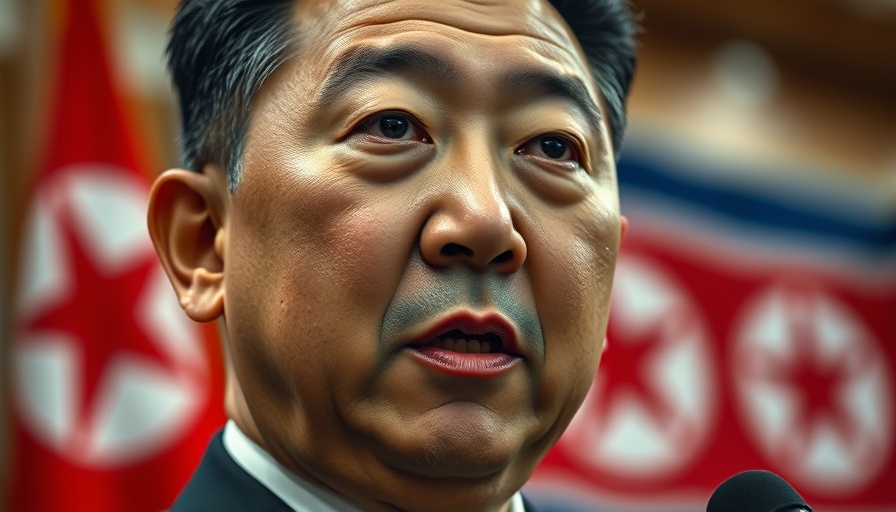
The Growing Tensions on the Korean Peninsula
Recent missile launches by North Korea, overseen by leader Kim Jong Un, have escalated tensions on the Korean Peninsula, highlighting an ongoing cycle of aggression and response. Reports from North Korean state media indicate that two air defense missiles were fired, boasting of their "superior combat capability" designed to target numerous aerial threats, including drones and cruise missiles.
Understanding the Context of the Missile Test
This test occurred shortly after a warning shot was fired by South Korea at North Korean soldiers crossing the Demilitarized Zone (DMZ), a heavily fortified border that has separated the two nations since the Korean War ended in 1953. The provocation is not merely military; it mirrors a longstanding conflict marked by periods of hostility followed by intermittent attempts at dialogue, often thwarted by mutual distrust and aggressive posturing. The recent exchanges highlight not only how quickly tensions can escalate but also how delicate diplomatic progress has become in the wake of heightened militarization.
The Impact of International Relations
Amidst these developments, the United States and South Korea have commenced large-scale military exercises, raising the stakes further. Kim Jong Un's reaction includes accusing Seoul and Washington of provoking tensions through these drills, which he labels as hostile and confrontational. Such statements reveal the thin thread on which peace hangs, as both sides prepare for a military showdown rather than fostering a more peaceful coexistence.
Rising Concerns Over Missile Technology
South Korean officials have voiced worries about the possibility of North Korea acquiring advanced missile technology from Russia, particularly in exchange for its support amid the conflict with Ukraine. This potential exchange raises concerns about North Korea's growing arms capabilities and its implications for regional stability. The uncertainty surrounding the origins of the technology used in recent missile tests adds another layer of complexity to an already tense situation. Analysts question whether the new missiles represent a significant technological leap or are merely a continuation of existing capabilities.
Historical Context of North-South Relations
The ongoing conflict is deeply rooted in the history of the Korean Peninsula. Following the Korean War, the two countries have remained technically at war due to the absence of a peace treaty, leading to a heavy militarization of the region. North Korea's isolationist regime prides itself on its military innovations as a form of deterrence against perceived threats from the South and its allies, underscoring how historical grievances continue to shape contemporary actions.
International Response and Future Implications
The international community remains on alert as North Korea continues its missile testing. Global leaders must navigate a tightrope of diplomacy and security, balancing actions that promote peace while discouraging aggression. The upcoming summits and discussions between the U.S. and South Korean presidents will be pivotal in determining the future trajectory of inter-Korean relations and broader geopolitical stability in the region.
What’s Next?
As tensions rise and missile tests continue, it is essential for individuals to stay informed about developments in the region. Understanding these dynamics allows for a more comprehensive grasp of how global conflicts can escalate and the intricate web of influence that nations weave. Keeping abreast of real-time world news is vital for anyone wanting to engage with and react to unfolding events that may have broader repercussions beyond the Korean Peninsula.
In these uncertain times, it’s crucial to be aware of the motivations and reactions of nations as they navigate a increasingly complex geopolitical landscape. Stay updated on world news today and engage with ongoing dialogues about peace and conflict across the globe.
 Add Row
Add Row  Add
Add 




Write A Comment